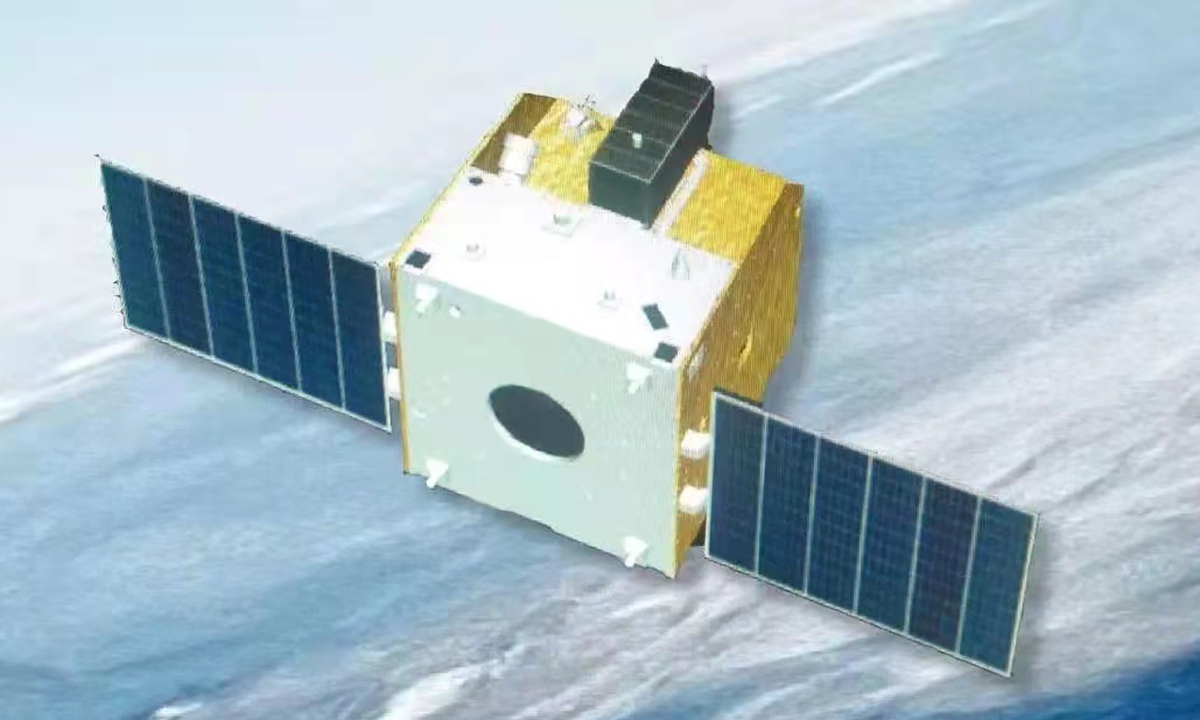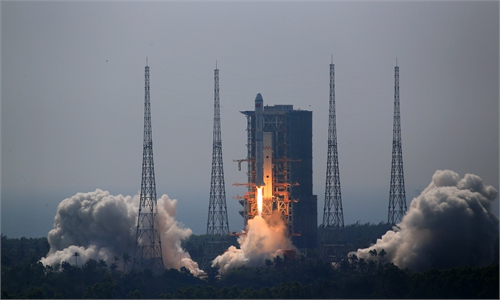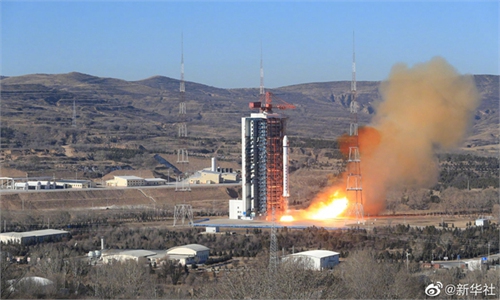
Tiankun-1 Photo: CASIC
The experimental Tiankun-2 satellite is set to be launched in the near future, the Global Times has learned from Ma Jie, Party chief of the Second Academy of China Aerospace Science & Industry Corporation (CASIC). Ma is also a deputy of the 13th National People's Congress (NPC), China's top legislature.
Inheriting the high functional density of Tiankun-1, the first experimental satellite independently developed by CASIC, which was sent into orbit in March 2017, Tiankun-2 has lower manufacturing costs and is smaller in size.
According to a statement CASIC sent to the Global Times on Thursday, Tiankun-1 has been running smoothly in orbit for five years since the launch on March 3, 2017. It has completed a variety of in-orbit tests and experiments and will continue to work beyond its scheduled service life.
It has obtained a total of 1,425 gigabytes of payload data and has carried out orbital maintenance four times.
It has orbited the Earth 28,200 times and its electronic system has been running for 43,800 hours, the statement said.
Tiankun-1 uses a modular design concept to form a small-sized satellite carrying a payload of multiple remote sensing and communication functions. It allows for observation of space debris among other tasks, which can support the country's emergency response capability.
The development of the new Tiankun-2 satellite has come to a final testing stage and it is expected to be launched in the near future, according to Ma. To meet increasing demand for construction of satellite constellations, the company has focused on key stages in satellite designing and manufacturing.
CASIC has constructed the country's first small satellite smart manufacturing line in Wuhan, capital of Central China's Hubei Province. The smart line delivered the first satellite in May 2021 and is now fully functional.




